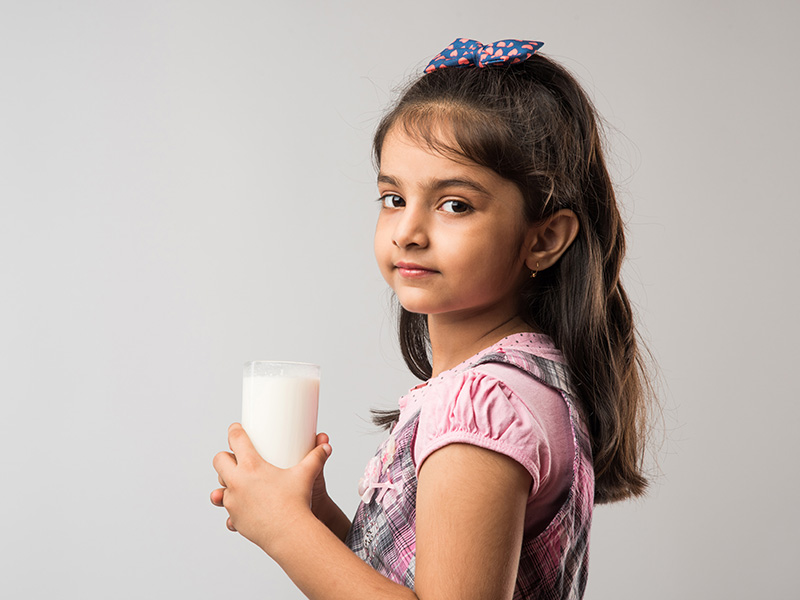Dr. Himanshi Kashyap, a well-known Gurgaon-based paediatrician, busts some myths about milk and health drinks consumption benefits for children
 The internet and social media are flooded with (mis)information about health drinks which promise to do wonders to children’s physical growth and well-being. Ditto there are many myths floating about milk consumption and consequential benefits for children. In an exclusive interview with PW, Dr. Himanshi Kashyap, well-known paediatrician and Director of Cheerful Child Development Centre, Gurgaon, busts some myths about milk and health drinks consumption benefits for children:
The internet and social media are flooded with (mis)information about health drinks which promise to do wonders to children’s physical growth and well-being. Ditto there are many myths floating about milk consumption and consequential benefits for children. In an exclusive interview with PW, Dr. Himanshi Kashyap, well-known paediatrician and Director of Cheerful Child Development Centre, Gurgaon, busts some myths about milk and health drinks consumption benefits for children:

Dr. Himanshi Kashyap
Myth: Children need health drinks
Health drinks could be fruit juice-based or contain vitamin/mineral supplements. They may provide hydration and some calories, but add a lot of unhealthy sugar to children’s diets. Some parents erroneously believe health drinks enable children to gain weight. If your child is not putting on weight, consult your pediatrician for a thorough medical check-up to rule out digestion problems and/or any other ailment. If all is clear, focus on including age-appropriate nutritious foods in the child’s diet. Some children are small and/or fussy eaters. Parents need to make the effort to vary their diet. Health drinks are not a substitute for a balanced diet, and are not recommended for children’s weight gain.
Myth: Children need to consume milk every day
Most infants stop breastfeeding after 2.5 years. Though milk is not essential after this age, most Indian parents insist on children consuming milk. It is hyped as a compulsory and often sole nourishment for infants and children. The types of milk available include freshly sourced milk from cow/buffalo, processed whole milk, low fat milk (toned, double toned, skimmed), etc.
Though there’s no denying that milk is a good source of nutrition — it provides protein, calcium, phosphorous, vitamin D, vitamin A, and vitamin B including vitamin B12 — there are some dangers. In milk processing plants, cattle are often injected with oxytocin and antibiotics, which may adversely affect milk quality.
Milk and its derivatives such as yoghurt, cheese, buttermilk, etc are preferable for preschoolers. At 2-3 years, children should not consume more than 2 cups of milk per day and at 3-5 years, 2½ cups is sufficient. Over consumption of milk can lead to anemia and inhibit the body from consuming other foods. Whole milk is preferred for children below two years of age, while low fat milk is recommended for children above two. Avoid adding sugar or flavor to milk. Infants are used to breast milk which is devoid of sugar. This will avoid a lot of unnecessary consumption of refined sugar later on.
Also read: Should I force my daughter to drink milk?























